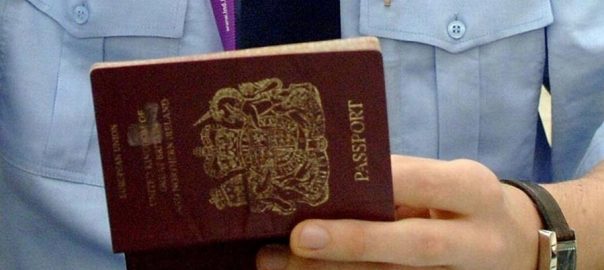In 2014 the Government introduced an Immigration Bill that promised to create a ‘hostile environment’ for illegal workers and for those who facilitated them settling in the UK. In 2016 this has been delivered. While there can be no doubt that the Government has taken dramatic steps in introducing legislation that is already having a huge impact on employment law, there are many fears and concerns over peripheral knock-on effects that could be felt in the job market and society in general.
The Immigration Act 2016 was first introduced in the Queen’s Speech of May 2015 as a list of amendments and additions to the 2014 legislation, and received royal assent twelve months later. There are new sanctions within it that will have a fundamental effect on employment law, and will focus on preventing illegal migrant workers finding employment and settling in the UK, and will also penalise those who aid them in this, such as rogue employers and landlords of business premises.
Essentially there are three key objectives in the 2016 legislation:
- Preventing access to banking, housing and driving licences for undocumented migrant workers, so that they find it increasingly difficult to settle in the UK and find employment opportunities.
- Where migrants have managed to enter the UK without the correct documentation, powers have been introduced to identify and remove them more efficiently.
- Where illegal migrants have found employment, further enforcement measures against both them and unscrupulous employers have been strengthened.
There are sections of the new legislation that highlight potential violations of the human rights of migrant workers, and these are among the eleven amendments to the 2014 Immigration Bill that were in force from July 2016. These included:
- The enforcement of preventing worker exploitation is now the responsibility of a new post created by the legislation, titled the Director of Labour Market Enforcement. Three bodies will work closely with the holder of this post, the body formerly known as the Gangmasters’ Licensing Authority, now re-titled the Gangmasters and Labour Abuse Authority, the Employment Standards Inspectorate and the HMRC.
- A new offence under the Proceeds of Crime Act 2002 means that earnings of illegal workers can be seized. Further punishment comes in the form of illegal migrants found to be working facing up to 51 weeks’ imprisonment and/or a fine. This applies only in England and Wales, elsewhere in the UK the offence carries a maximum prison sentence of six months and /or a fine.
- It is now a criminal offence for an employer to knowingly aid and abet an illegal worker in the pursuit of work. This carries a five year custodial sentence, which has been increased from two years.
- Powers to revoke the privileges of illegal workers, ie. bank accounts etc are also now in force.
Some of the provisions of the Immigration Act 2016 already in force, as mentioned above, and many of those not yet implemented into UK law, have caused some concern amongst employment experts and human rights’ campaigners, however. These include:
- An ‘Immigration Skills Charge’ will be enforced by the Secretary of State on employers who sponsor, and therefore encourage, skilled and legal workers from outside the current European Economic Area.
- Public workers in customer-facing roles will be required to have a command of spoken English which is defined as being “sufficient to enable the effective performance of the person’s role”.
- A landlord can face up to five years in prison for knowingly renting business premises to an illegal immigrant.
- A ‘deport first, appeal later’ scheme has been extended to include all illegal migrants, who will be removed to their home country pending any appeal against this penalty.
- Pregnant migrant women who have been found to be working illegally can only be detained for questioning for up to 72 hours.
Ison Harrison has a team of professional immigration and employment law experts, and their head of immigration agrees that the Immigration Act 2016 will have far-reaching effects in various aspects of society:
“The further toughening of the law on migration is as much to send a message to the general public that the Government is trying to do something, as it is to warn those who seek to enter and remain in the UK illegally. While the penalties may increase, living and working without status in the UK is no more illegal now that is was before the 2014 or 2016 Acts and those willing to break the law rarely consider the consequences of being caught doing so.
The steps the Government have taken in seeking to do what they say is strengthening borders and enabling enforcement of immigration law does seem to be creating the ‘hostile environment’ they are seeking.
This is partly being achieved by headline grabbing announcements such as those from the new Home Secretary recently on the registration of foreign workers but also by making de-facto border guards of not only Employers but also Registrars; Private Landlords; Bankers; Teacher; Midwives and the DVLA.
Migration has brought strength and diversity to the United Kingdom for centuries and will no doubt continue to under the new regulations and it is to be hoped that the Government will recognise and encourage the positives of legal immigration as clearly as they are dealing with the illegal minority.”
Opposition to the new legislation has come from human rights campaigners who can see various pitfalls in the sanctions being imposed, and also warn of the need to keep a clear distinction between preventing illegal workers exploiting the UK system and basic human rights violations. In particular there is a concern that prejudice and racial profiling could lead to migrants already living and working legally in the UK feeling unwelcome, and employers may also prefer not to employ migrants at all because it becomes costly and troublesome.
Furthermore, there are concerns that bank accounts could become frozen in error or prematurely, during discussions over a worker’s legal right to stay in the UK. This could have severe impacts on the worker’s family, which would definitely be the case if that worker was then deported and separated from his/her family. It has also been commented that landlords could be discriminatory in who they rent business premises to, for fear of being penalised in the future.
It is fair to say that the Government has delivered in terms of trying to control the ease with which undocumented workers have been settling in the UK. However, there is a genuine concern that the ‘hostile environment’ being created will unfairly prejudice current legal migrants who may see their law-abiding status turned into one of fear where the UK no longer feels hospitable, already exacerbated by June’s Brexit vote and the uncertainty and confusion surrounding it. In the meantime, the UK’s employers are readying themselves for the crackdown and a significant change in how they recruit and what measures and precautions they have to take themselves.
For more information on immigration and employment related matters, please contact Ben Davison at Ison Harrison.



